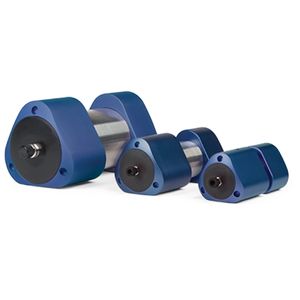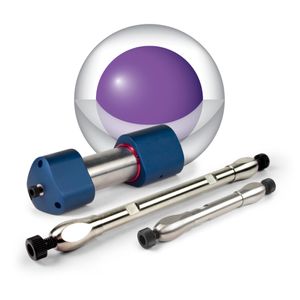WEBINARS
Our webinars allow users to learn from experts and earn continuing education credits on industry topics, progress in research, services available, and more.
Show More
-
AUG 07, 2024 | 10:00 AMIn this webinar, Jessica DesLauriers will share how she transformed the Avera McKennan laboratory and health system's quality management system into a reliable, standardized system with...
-
AUG 06, 2024 | 8:00 AMAnalytical Ultracentrifugation (AUC) stands as a cornerstone technique in the realm of molecular and particle analysis, offering unparalleled insights into the size, shape, and interactions...
-
July 30, 2024 9am PDT, 11am CDT, 12pm EDTLiquid Biopsy: Understand the significance of liquid biopsy in cancer research and the role of magnetic beads in sample preparation: After listening to the podcast, learners will be able to...
-
JULY 25, 2024 10:00 AM ETFor over 40 years Thomas Scientific's dedicated international export experts have made global sourcing easy to support all your scientific needs. Whether based internationally or a compa...
-
JUL 24, 2024 | 11:00 PMC.E. CREDITSSpatial transcriptomics offers a revolutionary approach to understanding the tumor microenvironment (TME) in solid tumors by preserving the spatial context of gene expression, which is cruci...
-
JULY 19, 2024 3:30 PM ETMany users in the area of sample storage work with the familiar cryotubes in 81 or 100 format. As a rule, the existing volume of the tubes is not used optimally. This circumstance leads to a...
-
The most common forms of pediatric tumors are acute leukemia (33%), brain tumors (25%), and lymphomas (15%). Diagnosing these tumors utilizes various tests, including those performed by a pa...
Recently, the American Association of Clinical Chemistry (AACC), now Association of Diagnostics & Laboratory Medicine (ADLM), in collaboration with the American Diabetes Association (ADA...
JUL 16, 2024 | 10:00 PM
Cell health assessment is the foundation in cancer drug discovery. Potential cancer drug candidates need to show anti-cancer activity such as inhibition of proliferation and induction of apo...
JUL 10, 2024 | 10:00 AM
Dr. Jim Richter and Dr. Clara Latorre will walk through the ever changing landscape of cervical screening and management. Cervical screening supports both pap cytology and HPV testing, depen...
JUL 10, 2024 | 10:00 AM
C.E. CREDITS
Thyroid abnormalities affect a considerable portion of the population. Globally, there is a large population of people who have undiagnosed thyroid dysfunction or are at risk of developing i...
JUL 09, 2024 | 9:00 AM
Introduction to Magnetic Bead: Understand the history, development, versatility, and impact of Dynabeads magnetic beads: After listening to the podcast, learners will be able to explain the...
JUN 27, 2024 | 10:00 AM
Variant detection of multiple genes from a single tumor sample requires high-throughput molecular testing. To meet this demand, targeted next-generation sequencing (NGS) panels are useful in...
JUN 27, 2024 | 7:00 AM
Globally, over 65 million individuals are estimated to suffer from post-acute sequelae of COVID-19 (PASC). A large number of individuals living with PASC experience cardiovascular symptoms (...
JUN 27, 2024 | 6:00 AM
C.E. CREDITS
High-resolution spatial transcriptomics stands at the forefront of technological advancements, offering transformative capabilities in the domain of tumor biology research. In this presentat...
JUN 26, 2024 | 12:00 PM
Mycosis fungoides (MF), the most common type of cutaneous T-cell lymphoma, is characterized by malignant T-cell skin infiltration leading to inflammation and skin barrier defects. To effecti...
JUN 26, 2024 | 9:00 AM
In this presentation, we will present a novel way of concentrating samples and performing buffer exchange using the µPULSE —TFF System. The instrument is a fully automated walk-a...
JUN 26, 2024 | 8:00 AM
This webinar explores the groundbreaking impact of innovative NGS enzymes on reshaping the landscape of next-generation sequencing (NGS) and accelerating NGS democratization in diagnostics....
JUN 25, 2024 | 9:00 PM
Over 95% of potential anti-cancer drugs failed in clinical trials despite vast investment to bring the drug to market. The last decade of cancer research has also seen numerous advances aime...
JUN 25, 2024 | 1:00 PM
Gastrointestinal infections present a formidable challenge to healthcare systems. As we navigate this landscape, we recognize that there are numerous benefits when moving from conventional t...
JUN 25, 2024 | 9:00 AM
C.E. CREDITS
Cytomegalovirus (CMV) is a ubiquitous infection and congenital CMV (cCMV) infection is the most common non-genetic cause of hearing loss in infants and children. However, most pregnant women...
JUNE 21, 2024 3:30 PM ET
Automated Magbead Extraction accelerates your DNA Library Preparation. Gilson Pipetmax uses robotic scripts developed using PIPETMAX for NGS....
JUN 21, 2024 | 12:00 AM
Rapid detection and identification of microbial pathogens in the laboratory is imperative. However, standard microbiology testing approaches often depend on the recovery and culture of viabl...
JUN 20, 2024 | 7:30 AM
Transmembrane proteins (TPs) serve as crucial conduits between the internal and external environments of cells, regulating ion and molecule passage and orchestrating cellular responses to ex...
JUN 19, 2024 | 8:30 AM
Join us for an illuminating webinar as we delve into the realm of open automation with Inpeco, the global leader in Total Laboratory Automation. Discover how their groundbreaking s...
The difficulties in making an accurate diagnosis, the workload in terms of time and the small number of pathologists represent significant problems in laboratory routine. From this perspecti...
Get insights from leading experts, Dr. Normanno and Prof. Turnbull, as they discuss the implications of large NGS panels, co-mutations, and the introduction of patients harboring germline va...
































































